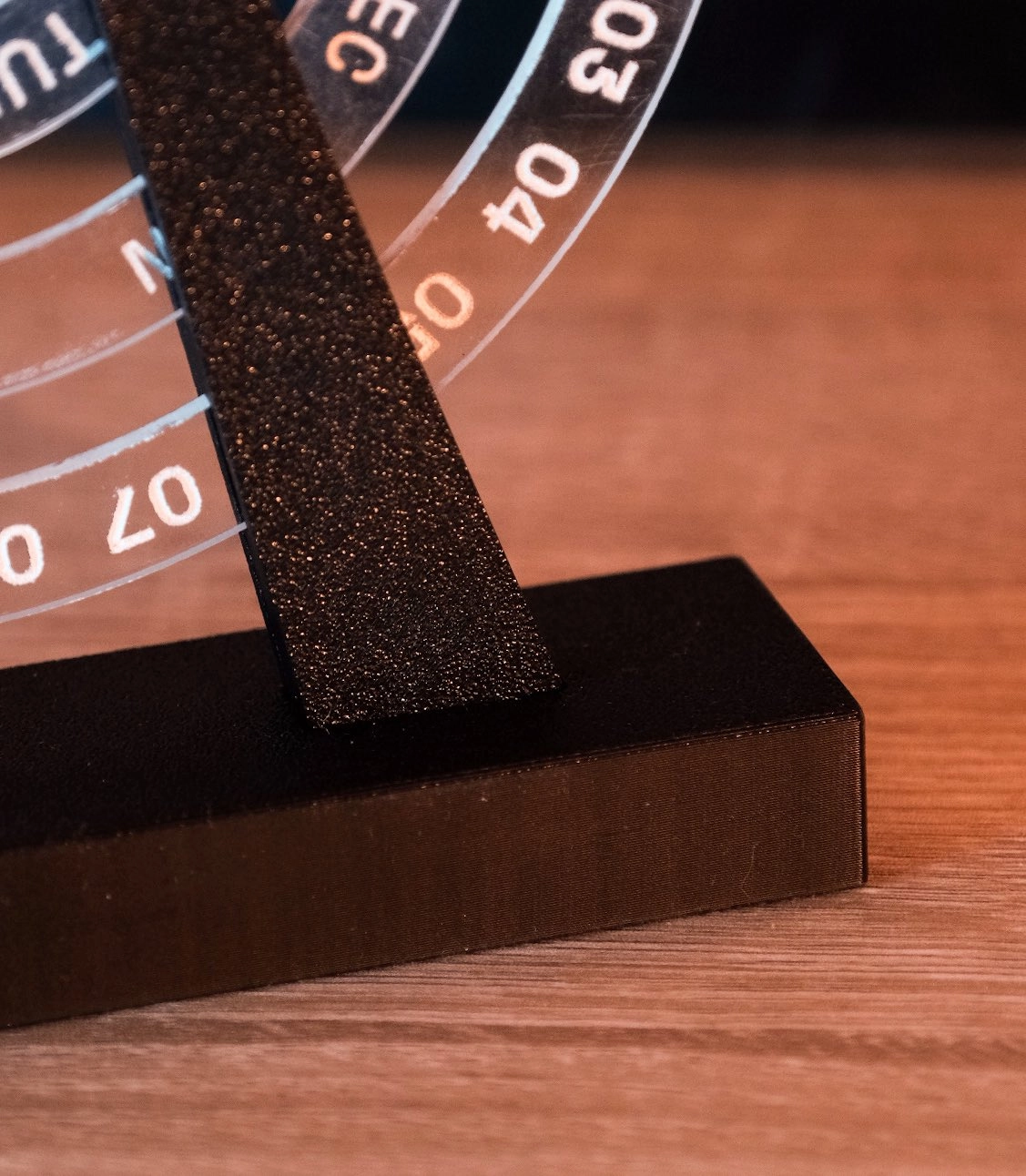Time, as both a construct and a resource, is profoundly valuable. It serves as a conduit for memories, channeling fleeting moments into the structure of days, months, and years. Whether marked manually or digitally, people often highlight significant events, attaching them to specific dates and preserving them as milestones in their lives.
For Oladele Agboola and Eyiyemi Adegbite of The Wild Ones, the intrinsic connection between time, memory, and organization inspired the creation of the Eko Calendar. This Nigerian-centric, Lagos-inspired, futuristic perpetual calendar is their debut product—a glimpse into the duo's innovative spirit and their mission to design products and projects that prioritize ease and improve the quality of life of the average Nigerian. Drawing from their backgrounds as multidisciplinary designers and their combined experiences living and working as creatives in 21st-century Nigeria, The Wild Ones are determined to challenge and redefine the status quo.
In this feature, Oladele and Eyiyemi share insights into their inspiration, aspirations, and the future of their collective.



We are essentially a product design studio, but our work goes beyond that. The core idea is to build a thriving community of creators who think without limits and bring their unconventional ideas to life. Everything we do is centered around this, and we continually fine-tune our approach as we progress.
Eyiyemi: We met through a mutual friend. We started crossing paths on different projects, and I noticed that Dele was great at implementation. He was always bridging the gap between ideation and execution. On the other hand, I focus on bridging the gap between marketing, branding, and product.

Eyiyemi: Last year, I had a few branding projects that required creating physical prototypes for some designs, and it became a challenge. Sourcing high-quality materials to create physical products was a real struggle. I spoke to my friend Oladele and told him we should figure this out. That was the beginning of The Wild Ones. Everything we do is backed by extensive research because we aim to find feasible solutions for local production of high-quality products for Nigerians and Africans.
It’s been going well, considering that most of the challenges we face are infrastructural. The systems we’re working on have already been figured out by more advanced working models. So, we're just trying to adapt them to the Nigerian context, taking into account the many factors at play. One challenge is how craftsmanship is perceived here, which is quite different from how it’s valued globally. We’re doing a lot of thinking and iteration, which can be tough, but it’s also been very fulfilling.

Oladele: I’ve owned a 50-year perpetual calendar for a while, and it expires this year. So, I thought about designing a version that would never expire. I started researching different types of perpetual calendars and began sketching ideas. I came across a calendar with an electric line design that reminded me of the Lekki-Ikoyi Link Bridge. That’s when the idea solidified. I called Eyiyemi, and then I sketched it out on Illustrator. We started with prototypes, and our first one was made of wood and acrylic.
Eyiyemi: From there, we looked at how to convert the design into its final form. We used wood, but CNC is expensive and primarily used for larger mediums and furniture. We also wanted to keep the minimum order quantity (MOQ) low so we could easily make adjustments to the prototypes. This strategy helped us refine the design of the calendar. Apart from capturing the silhouette of the Lekki-Ikoyi Link Bridge, we wanted the calendar to be easy to assemble and disassemble. We worked through various iterations until we arrived at the final design—a simple perpetual calendar with three rings: one for the date, one for the day, and another for the month. The user turns the three dials clockwise to set the date.
Currently, we are using acrylic and ABS plastic. ABS plastic is highly recyclable. We’re also researching how to recycle plastic into filament, which we can later turn into 3D-printed cards. For example, we have a box of prototypes that we’re experimenting with recycling rather than throwing away.

We’re just scratching the surface with this calendar. It’s a test of the waters. There are many stories to be told, and that’s what we’re focusing on. We have several other projects in the works. The Eko Calendar is part of a larger project called The Yard, where we recreate household furniture and items. The Wild Ones is a collective of people with different dreams, and our goal is to bring them all to life. There’s no niche, no box—just projects that start conversations.





